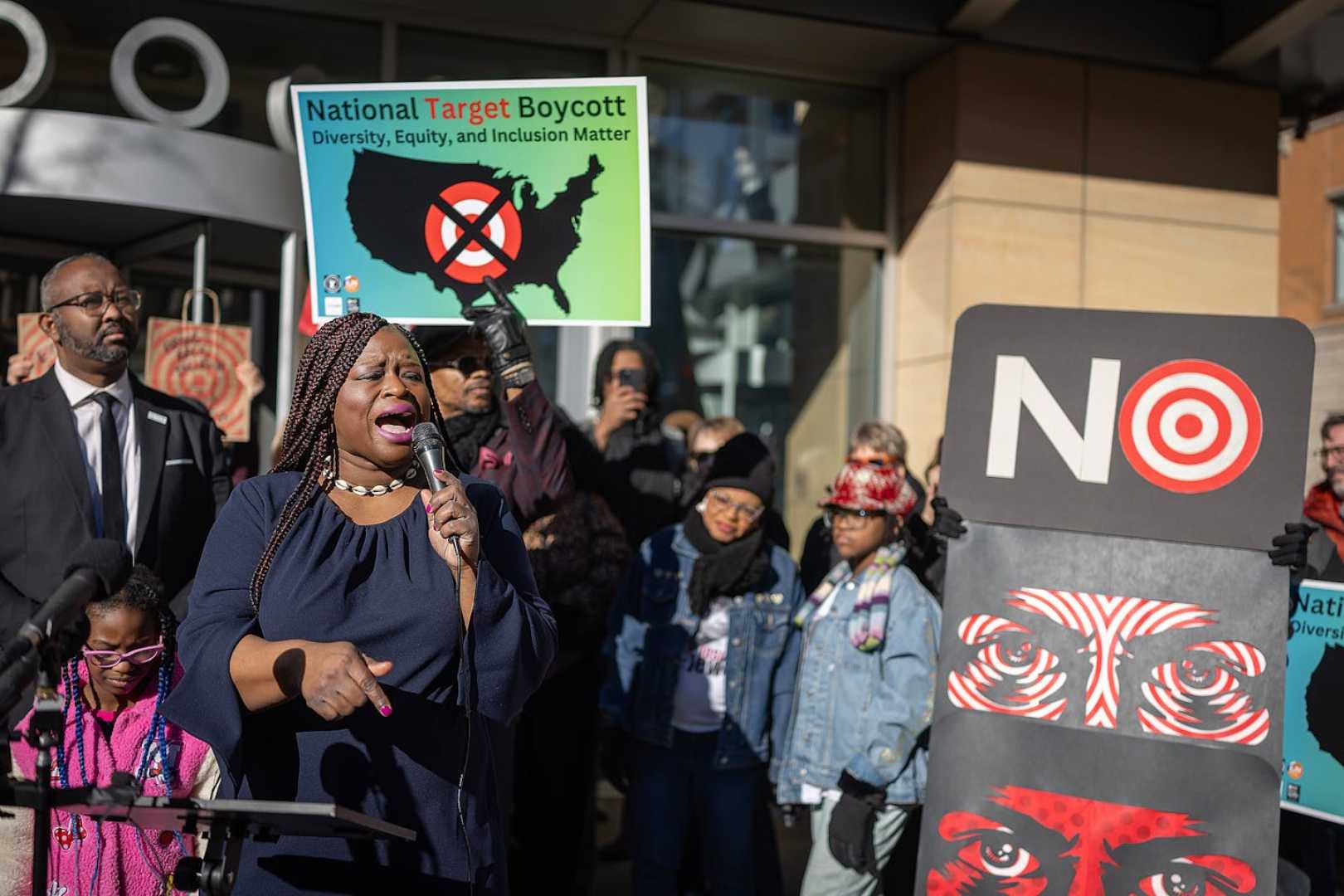Business
Target Faces Backlash for Scaling Back Diversity Programs Amid Political Pressure

New York, NY — Target is experiencing significant backlash after the company announced the discontinuation of some of its diversity, equity, and inclusion (DEI) programs last month. The announcement, made on January 24, comes under the administration of President Trump amidst a broader backlash against corporate DEI initiatives. Customers, activists, and even the heirs of one of the company’s founders are expressing their dissatisfaction with Target’s decision to eliminate hiring goals for minority employees and to dissolve its executive committee focused on racial justice.
“We are committed to creating a sense of belonging for our team, guests, and communities,” Target stated in its announcement, mentioning the introduction of a new strategy called ‘Belonging at the Bullseye.’ However, critics argue that the company’s shift indicates an abandonment of its previously held progressive values.
Target’s rollback of DEI measures has garnered more intensity of criticism than similar moves by other corporations, such as Walmart or John Deere. According to Shreyans Goenka, a marketing professor at Virginia Tech, the backlash against Target is tied to its previous commitments to DEI, which were perceived as sincere by its customer base. “When brands become arbitrary in their social causes—supporting DEI today and rolling it back tomorrow—it leads to inconsistent positioning and makes the brand seem inauthentic,” Goenka noted.
The criticism intensified in the wake of George Floyd‘s murder in 2020, an event that prompted many corporations, including Target, to enhance their DEI initiatives to appeal to what many saw as a demand for social justice in corporate America. Target had established significant policies to promote diversity in hiring and to support underserved communities. Yet, the recent changes have left many questioning the company’s authenticity.
Anne and Lucy Dayton, the daughters of one of Target’s founders, publicly stated that they were “shocked and dismayed” by the company’s decision to roll back its DEI initiatives. In an op-ed published in the Los Angeles Times, they called the changes “a betrayal” and highlighted the detrimental effects on the very principles behind the company’s success.
Public sentiment demonstrated its disapproval as social media saw a surge of negative commentary against Target’s new approach. An analysis from the marketing firm Social Element revealed that Target received nearly three times the number of social media mentions regarding its DEI changes compared to Walmart, with most comments being critical. Many posts called for a boycott of the chain.
Following the announcement of the changes, foot traffic to Target stores saw a decrease. Market analytics firm Placer.ai reported a 4% drop in visits to Target’s stores during the week following the announcement as compared to the same week in the previous year.
Despite Target’s assurances of still valuing inclusivity, many of its top Black executives have departed from the company amid these shifts. The company has also ended its participation in external diversity-focused surveys like the one from the Human Rights Campaign.
Some industry experts suggest that while the current backlash may cause short-term repercussions, it remains uncertain whether it will result in long-lasting impacts on Target’s bottom line, similar to what Bud Light faced after its brief partnership with a transgender influencer in 2023.
As the landscape of corporate America shifts with political influences, Target’s situation serves as a crucial test for many businesses reassessing their commitment to diversity amid evolving external pressures. “Target misjudged their customer base,” noted Scott Bisang, a communications consultant. This invites questions about how corporations navigate their social responsibilities in a politically charged environment.












